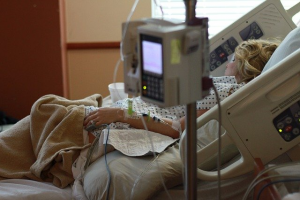
Selenium supplementation – especially intravenous selenium supplementation – seems to be a promising adjuvant treatment for critically ill patients.
The aggregated results of a meta-analysis of the clinical outcomes of selenium supplementation on critically ill patients shows that intravenous selenium supplements as a single therapy can decrease the total mortality and can shorten the length of stay in hospital [Zhao 2019].
Furthermore, the results from the meta-analysis showed that the selenium supplementation did not increase the incidence of drug-induced side effects compared with the control group [Zhao 2019].
Selenium Supplementation for Critically Ill Patients – The Evidence
The researchers reviewed 19 randomized controlled trials enrolling 3341 critically ill patients. There were 1694 critically ill patients in the selenium supplementation group and 1647 critically ill patients in the control group.
- The patients in the selenium supplementation group were given parenteral selenium supplementation singly at different doses (not in combination with other antioxidant micronutrients). The patients in the control group were given placebo or maintenance dose selenium or no intervention [Zhao 2019].
- In 14 of the studies, the doses of selenium supplementation on the first day varied from 1000 microg to 4000 microg in different studies. In five of the studies, the dosage ranged from 300 to 535 microg [Zhao 2019, table 1].
- The duration of the selenium treatment in the studies ranged from nine days to 28 days [Zhao 2019, table 1].
Pioneer Study with IV Selenium Treatment in Pancreatitis

As early as 1991, Dr. Bodo Kuklinski was treating patients with acute necrotizing pancreatitis. He suspected that acute pancreatitis involves oxidative damage caused by harmful free radicals [Kuklinski 1991].
In a clinical trial, Dr. Kuklinski tested the efficacy of adjuvant selenium with sodium selenite in a daily dose of 500 micrograms. The mortality rate in the control group was 89% whereas no patient died in the therapy group [Kuklinski 1991].
The selenium therapy was associated with a normalization within 24 hours of the serum calcium levels and with a decrease of the increased malondialdehyde values. Dr. Kuklinski concluded that the infusion of selenium reduced the extent of oxidative stress and inflammation in the critically ill patients [Kuklinski 1991].
Oxidative stress = the damage done to cells and tissues as a consequence of an imbalance between harmful free radicals and protective antioxidants in the body
Malondialdehyde = an organic compound that is a a bio-marker for the presence of oxidative stress
Bottom Line: Selenium Supplementation and Critically Ill Patients
Dying is a very real possibility for critically ill patients.
This meta-analysis delivers an important message: there was a significantly reduced mortality in the selenium supplement group compared to the control group [Zhao 2019].
The evidence of this meta-analysis shows that the use of selenium could significantly reduce overall mortality and could shorten the length of stay in hospital for critically ill patients [Zhao 2019].
Sources
Kuklinski B, Buchner M, Schweder R, Nagel R. Acute pancreatitis – a free radical disease. Decrease in fatality with sodium selenite (Na2SeO3) therapy. Z Gesamte Inn Med. 1991;46:145–9.
Zhao Y, Yang M, Mao Z, et al. The clinical outcomes of selenium supplementation on critically ill patients: A meta-analysis of randomized controlled trials. Medicine (Baltimore). 2019;98(20):e15473.
The information presented in this review article is not intended as medical advice and should not be used as such.
30 November 2020
